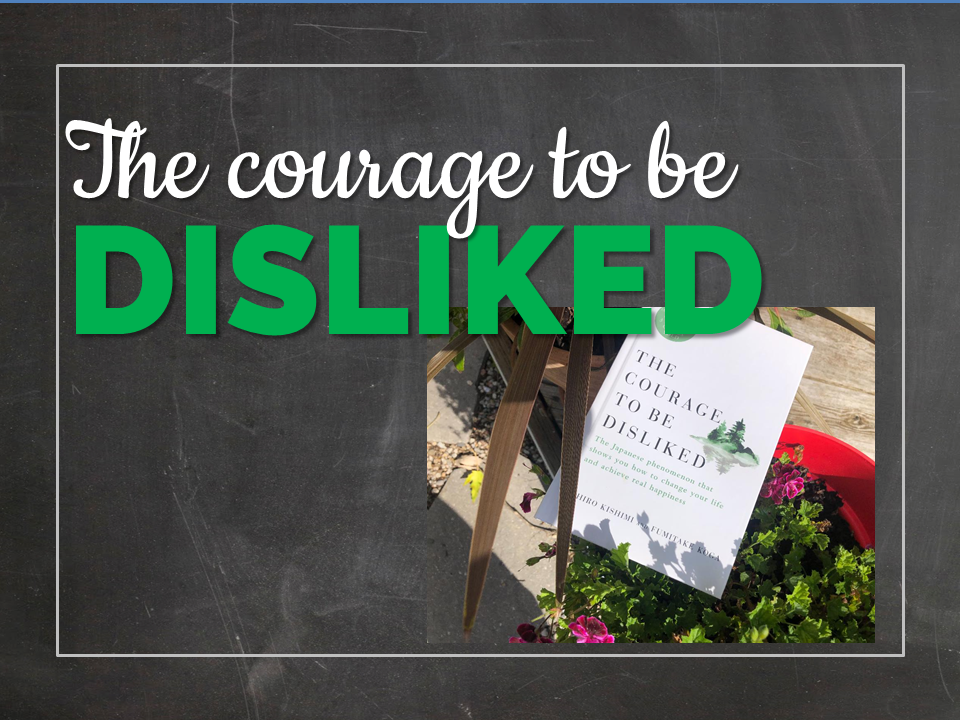Are you a PEOPLE-PLEASER?
If so, you’re not alone.
So many of us suffer from this “disease to please.”
And it can (and usually does) have a negative impact on your own self-care.
It can dictate whether you get out to exercise today.
It can allow others to control your schedule.
It can cause you to feel unhappy, and feel trapped.
And it can, of course, lead you to eat, or pick up other unhealthy habits to feel better.
Yet it seems like the right thing to do, right?
It feels like you’re caring for others, and doing the things that are “expected” of you.
But in fact, it may be coming from a fear of being disliked, or being perceived as selfish or self-serving.
Or it may be coming from a strong desire to be recognized and praised.
And then, when you take on these tasks to please others, you may not feel like you have the time or energy to take care of your own needs and wants.
Not to mention the feelings of resentment and anger that can surface.
And, of course, where there’s negative emotion, there’s usually some sort of vice (food, Netflix, shopping, wine,…)
Yikes!
As you can see, pleasing others can have a cost.
But imagine if you had the COURAGE to be disliked…

The Courage to Be Disliked
I just read the book, “The Courage to Be Disliked,” by Ichiro Kishimi and Fumitake Koga.
It’s a fascinating conversation between a Philosopher and a Youth, which may challenge the way you see the world.
In the book, which is based on the theories of psychotherapist Alfred Adler, it’s written that being disliked is FREEDOM.
What?
I don’t know about you, but I’ve avoided being disliked most of my life.
Either by avoiding people (and therefore avoiding being disliked by people.)
Or by people-pleasing.
I never thought being disliked would be freeing!
But it’s true that, no matter what I do, not everyone likes me.
I’m not everyone’s cup of tea, for sure.
And I can’t control what others think of me.
Even if I do everything “right.”
The only person I can control is me.
And therefore the only person I can truly please is me.
And I can see the freedom (and the relief) in that.
Although this book isn’t about people-pleasing, it definitely highlighted that issue for me.
It brought to the surface my own people-pleasing tendencies.
And I realize that it’s an issue that comes up often in my coaching work with clients.
So, I just wanted to share some of the interesting points of view the book offers, with people-pleasing in mind…
Life is not a competition
In the book it says that there’s no need to compare ourselves with others.
And in fact, comparing ourselves with others is what makes us most unhappy.
Trying to keep up with the Jones’, or the way grandma used to do things, or the way (it appears that) others can eat whatever they want and stay thin.
I agree, comparison sucks.
It can lead you to feel inferior, or even superior at the expense of others.
And you know how easily this can happen every day, just by scrolling through social media.
So, imagine there was no competition.
There would be no need for comparison.
You and me would be equal, even though we’re not the same.
Without comparison, there wouldn’t be ONE ideal.
There would be room for all.
No winners, no losers.
And no one to people-please but ourselves.
Deny the desire for recognition
The authors write, that by seeking recognition from others, and concerning ourselves with the judgment of others, we end up living other people’s lives.
I think this is essentially what people-pleasing is all about.
Wanting to live into others’ expectations.
And then ending up not living into your own.
This is a tough one, because I think we all like praise and recognition.
But the danger is that it can become a reward you’re constantly running after.
And it may stop you from doing the possibly unrecognized work you’re really here to do.
I struggled with this one when I left the corporate world.
Because I was leaving a world where if I did what was expected of me, I’d get the slap on the back, or a raise, or a promotion.
But working for myself, that doesn’t generally happen.
Although I get feedback from my clients, I mostly rely on my own self-evaluations.
And yes, I see from this perspective, that not needing the praise and recognition is pretty liberating.
Discard other people’s tasks
I love this one.
Because it explains that others are not living to satisfy your expectations.
Just as you are not here to satisfy others’ expectations.
We all have our own tasks in life.
Our own joys and burdens to carry.
And we must go about them in our own ways.
When you take on someone else’s tasks, you take their tasks away, and you end up suffering.
One of the best ways they explain this, is by looking at the expectations we place on our children.
We want them to do well in school, and get a good paying, respectable job.
But those are OUR expectations as parents.
So, each time we shout at them to study, or push them in the direction of a particular line of work, we’re taking on their life-tasks.
Meaning, we’re taking on worry and stress about tasks that our not ours.
And we’re doing it because of our own expectations (which, let’s face it, are likely based on the perception of others.)
That comparison thing again.
Imagine you left it up to your children to take responsibility for their work, and their future.
Without interference.
But just being there for support.
You wouldn’t need to carry that burden of worry, or expend energy pleading and pushing.
Instead, you could apply that energy to your own life tasks.
You’d get to those self-care tasks that you’ve been putting off.
And you’d give your kids the responsibility for their own life work.
From which they can learn and grow.
Something to consider.
The courage to be normal
This one takes a lot of self-acceptance.
Because it’s about seeing yourself as you are, through your own eyes, and accepting what you see.
It’s about NOT needing to feel special.
Not needing the attention of other people.
If you grew up trying to please your parents by doing everything “right” then you know what this drive to be special is.
It’s the drive for recognition and to be seen.
Instead, what if you could believe that, in this moment, you are enough.
You are enough just being your normal, everyday self.
There would be a lot of freedom in that.
No need to prove yourself to others, or to meet an ideal set by others.
You could just do you, and that would be enough.
Is people-pleasing stopping you from taking care of you?
It’s great to want to care for and support others.
But, it’s important to be aware if you’re do these things at the expense of yourself.
Reading this book, I looked back at my life and began to see the decisions I made that were more about pleasing others than pleasing myself.
But then I also see where I made some strong decisions in favor of myself, too.
And I see the courage those decisions took.
Because they weren’t popular, they were risky.
But they were absolutely freeing.
And ironically, because of that freedom, I’ve probably been able to please more people.
Keep moving forward, my friend.
Debbie
P.S. Are you stuck in people-pleasing and not moving towards your own goals and dreams? Then let’s connect and get you moving:
https://calendly.com/debbie-harbec-coaching/free-consultation


